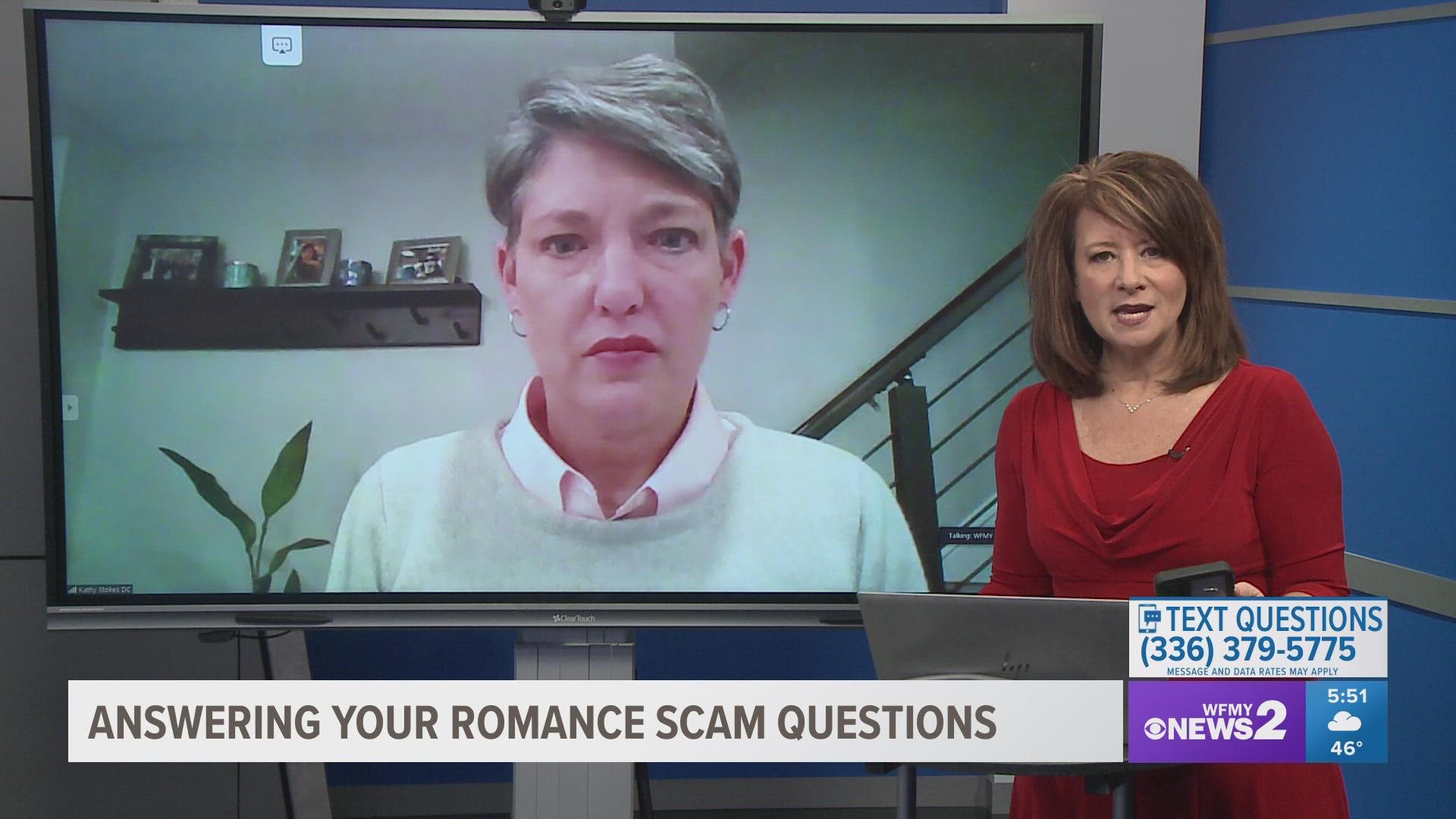GREENSBORO, N.C. — Scammers are everywhere these days. No matter where you go, a scammer seems to be there waiting for you.
This time of year, you really have to watch out for romance scams. They can happen at any time, but especially now with Valentine's Day coming up.
2 Wants to Know spoke with Kathleen Stokes, the AARP Director of Fraud Prevention programs, to get tricks on how to protect yourself.
Romance Scams
Online romance scams don’t just happen around Valentine’s Day, but for anyone looking to engage with a dating site or app, be aware of the fraud that is being perpetrated
Reported losses were $75 million in 2016 and $304 million in 2020. Older people fall victim to the scams more often. The FTC said the median loss for someone over 70 is $9,500.
Romance scams happen on several platforms, including social media and gaming websites where people may not even be looking for love.
Red Flags
Stokes said to watch out for the following red flags:
- Someone you meet online takes an interest in you very quickly.
- They ask to move to a different platform to communicate.
- They claim to be in the military or work internationally.
- They promise to meet but never follow through.
- They start asking for money. It can come through wire transfers or gift card requests.
Stokes said you should never send money to someone you've only met online.
Do's and Don'ts
The AARP has a list of things to keep in mind when online dating.
Do:
- Take it slow. The scammer may try to move things along very quickly.
- Check the person's profile using Google's "search by image" tool. You may it used for an ad or something else to let you know it's a scam.
- Cut off contact immediately if it feels suspicious.
- Let the dating platform know of the incident.
Don't:
- You shouldn't get a false sense of security when talking to someone you've only met online. Scammers take advantage of vulnerable people.
- Don't give away too much personal information. It could compromise your identity or your bank accounts.
- Never send money to someone you've only met online.


